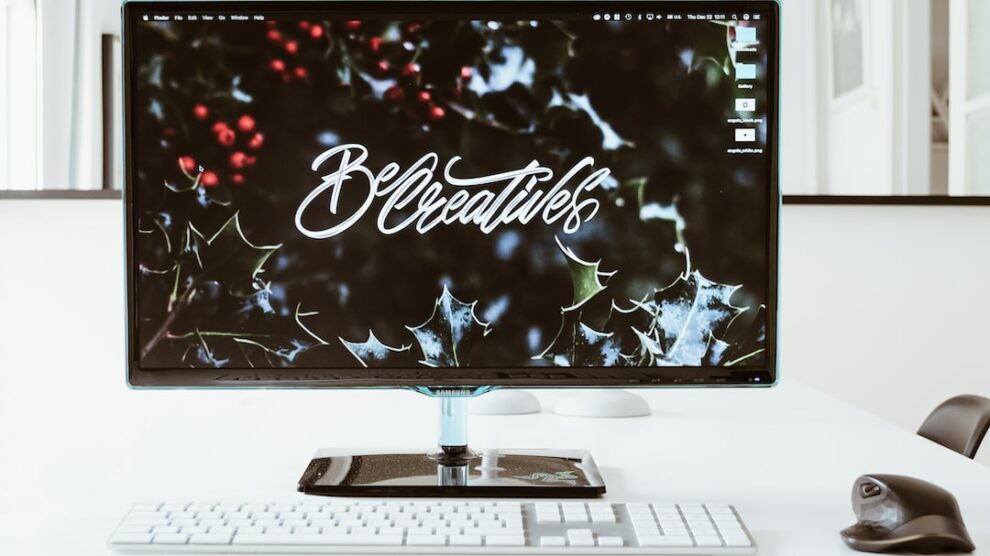Blogging has become a popular platform for individuals to express themselves, share their knowledge, and connect with others. It can be a rewarding and fulfilling experience, allowing bloggers to build a community and make a positive impact. However, it is important to acknowledge that blogging also comes with its own set of risks and challenges. In this blog post, we will explore some of the darker aspects of blogging and provide tips on how to manage them.
Key Takeaways
- Cyberbullying and trolling are common issues in the blogging world, but there are ways to deal with them effectively.
- Protecting your personal information online is crucial to avoid privacy concerns and potential harm.
- Avoiding copyright infringement is important to prevent legal issues with your blog content.
- Consistent blogging can lead to burnout, but managing stress and taking breaks can help prevent it.
- Handling negative feedback and criticism is a necessary skill for bloggers to develop.
Cyberbullying: How to Deal with Online Harassment and Trolling
One of the most prevalent dark sides of blogging is cyberbullying. With the anonymity provided by the internet, some individuals feel empowered to harass and troll others online. Cyberbullying can have a negative impact on mental health and well-being, causing stress, anxiety, and even depression.
To deal with online harassment and trolling, it is important to take proactive measures. First and foremost, block and report abusive users. Most blogging platforms have features that allow you to block specific users or delete their comments. Additionally, report any instances of cyberbullying to the platform administrators or moderators.
It is also important to remember not to engage with the trolls. Responding to their comments or engaging in arguments will only fuel their behavior. Instead, focus on creating a positive and supportive community on your blog. Encourage your readers to report any instances of cyberbullying they come across and make it clear that such behavior will not be tolerated.
Privacy Concerns: Protecting Your Personal Information Online
As bloggers, we often share personal information online in order to connect with our readers and build trust. However, this can make us vulnerable to privacy concerns such as identity theft and online stalking. It is crucial to take steps to protect our personal information online.
Firstly, be mindful of the information you share on your blog. Avoid sharing sensitive personal details such as your home address or phone number. Instead, create a separate email address for blog-related communication and use a pseudonym if you prefer to keep your identity private.
Secondly, use strong passwords and enable two-factor authentication on all your online accounts. This will add an extra layer of security and make it harder for hackers to gain access to your personal information.
Lastly, be cautious when using public Wi-Fi networks. Public Wi-Fi networks are often unsecured, making it easier for hackers to intercept your data. If you need to access the internet while on the go, consider using a virtual private network (VPN) to encrypt your connection and protect your privacy.
Copyright Infringement: Avoiding Legal Issues with Your Blog Content
| Topic | Description |
|---|---|
| Definition | The unauthorized use of someone else’s work, such as images, text, or videos, without permission or proper attribution. |
| Types of infringement | Direct infringement, contributory infringement, vicarious infringement. |
| Consequences | Lawsuits, fines, legal fees, loss of revenue, damage to reputation. |
| Prevention | Obtain permission, use public domain or creative commons content, give proper attribution, use fair use doctrine. |
| Best practices | Regularly check for infringement, educate yourself and your team, have a clear copyright policy, respond promptly to infringement claims. |
Copyright infringement is another dark side of blogging that bloggers need to be aware of. It is important to respect the rights of others and avoid using copyrighted material without permission. This includes images, videos, music, and written content.
To avoid legal issues with your blog content, it is important to use royalty-free images or create your own visuals. There are many websites that offer free or low-cost stock images that can be used for commercial purposes. Additionally, if you are using content created by others, make sure to properly cite your sources and give credit where it is due.
If you receive a copyright infringement notice or a takedown request, take it seriously and respond promptly. Ignoring such requests can lead to legal consequences and damage your reputation as a blogger. If you are unsure about the legality of using certain content, consult with a legal professional to ensure you are in compliance with copyright laws.
Burnout: Managing the Stress of Consistent Blogging
Consistent blogging can be demanding and stressful, leading to burnout if not managed properly. Many bloggers feel the pressure to constantly produce new content and maintain a consistent posting schedule. This can take a toll on their mental and physical well-being.
To manage the stress of consistent blogging, it is important to set realistic goals and expectations for yourself. Understand that it is okay to take breaks and prioritize self-care. Create a schedule that allows for downtime and relaxation. This could mean taking a day off from blogging each week or scheduling regular vacations to recharge.
It is also important to delegate tasks and seek support when needed. If you have a team or collaborators, share the workload and ask for help when you feel overwhelmed. Additionally, reach out to other bloggers or join blogging communities where you can find support and advice from others who understand the challenges of blogging.
Negative Feedback: How to Handle Criticism and Negative Comments

As bloggers, we put ourselves out there and open ourselves up to criticism. It is inevitable that we will receive negative feedback and comments from time to time. However, handling criticism in a constructive manner is crucial for personal growth and maintaining a positive online presence.
When faced with negative feedback or comments, it is important to take a step back and assess the situation objectively. Determine if the criticism is valid and if there is room for improvement. If the criticism is constructive, use it as an opportunity to learn and grow.
Responding professionally is key when dealing with negative comments. Avoid getting defensive or engaging in arguments. Instead, respond calmly and respectfully, addressing any valid concerns raised. If the comment is clearly malicious or trolling, it may be best to ignore it or delete it if it violates your blog’s comment policy.
Focus on the constructive feedback and use it to improve your content or address any issues raised. Remember that not everyone will agree with your opinions or perspectives, and that’s okay. Stay true to yourself and your values as a blogger.
Addiction: Balancing Your Time and Energy with Blogging
Blogging can become addictive, especially when you start seeing success and positive feedback from your readers. It is easy to get caught up in the constant need to create content and engage with your audience. However, it is important to find a balance and prioritize your well-being.
Set boundaries and establish a schedule that allows for dedicated blogging time as well as time for other activities and relationships. This will help prevent burnout and ensure that you are not neglecting other important aspects of your life.
Practice self-care and prioritize your mental and physical health. Take breaks when needed and engage in activities that bring you joy and relaxation. Remember that blogging should enhance your life, not consume it entirely.
Scams and Fraud: Avoiding Online Scams and Protecting Your Readers
As bloggers, we have a responsibility to protect our readers from online scams and fraud. It is important to be aware of the various scams that exist online and take steps to avoid falling victim to them.
Firstly, be cautious when partnering with brands or accepting sponsored content. Research the company or individual thoroughly before entering into any agreements. Look for reviews or testimonials from other bloggers who have worked with them in the past.
Secondly, use secure payment methods when conducting any financial transactions online. Avoid sharing sensitive financial information such as credit card details or bank account numbers unless you are confident in the security of the website or platform.
Lastly, be vigilant when it comes to suspicious links or emails. Phishing scams are common and can lead to identity theft or financial loss. Avoid clicking on links from unknown sources and be cautious when providing personal information online.
Mental Health: Recognizing the Impact of Blogging on Your Mental Health
Blogging can have a significant impact on mental health and well-being. The pressure to constantly produce content, engage with readers, and maintain a positive online presence can be overwhelming at times. It is important to recognize the signs of mental health issues and seek support when needed.
Pay attention to your mental state and emotional well-being. If you find yourself feeling constantly stressed, anxious, or overwhelmed, it may be a sign that you need to take a step back and prioritize self-care. Reach out to friends, family, or mental health professionals for support and guidance.
Take breaks when needed and give yourself permission to rest and recharge. Remember that your mental health is just as important as your blog. Prioritize self-care activities such as exercise, meditation, or spending time in nature.
Finding a Balance and Managing the Risks of Blogging
In conclusion, blogging can be a rewarding and fulfilling experience, but it also comes with its own set of risks and challenges. It is important to be aware of the darker aspects of blogging and take proactive measures to manage them.
From cyberbullying to privacy concerns, copyright infringement to burnout, negative feedback to addiction, scams and fraud to mental health issues, bloggers face a wide range of challenges. By implementing the tips and strategies discussed in this article, bloggers can find a balance and ensure a positive and sustainable blogging experience.
Remember that your well-being should always come first. Take care of yourself, seek support when needed, and prioritize self-care. By managing the risks and challenges of blogging, you can continue to enjoy the benefits and rewards that come with sharing your voice and connecting with others through your blog.









Add Comment